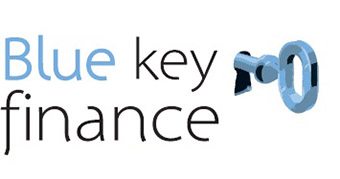What are the purchasing costs?
It’s important to know all the purchasing costs involved upfront, to avoid any unwanted surprises along the way.
Purchasing costs
Deposit
Generally, it’s a good idea to save around 10 – 25% of the property value as a deposit. The greater the deposit, the less you will have to borrow (and the lower your repayments will be), but it all depends how soon you want to be in your new place.
Most lenders will lend to 90% of the property value but we have several lenders that will still go to 95% of the property value and allow you to capitalise the mortgage insurance premium, effectively lending you up to 97% of the property value.
Lenders Mortgage Insurance (LMI)
If you are borrowing over 80% of your new home’s value, generally you will be required to take out lenders mortgage insurance (LMI). This protects the bank if you can no longer pay the mortgage and default the loan. LMI is charged as a once-only premium and is added to your loan so that you don’t have to save for the fee upfront.
If you don’t want to pay LMI, some lenders will allow your parents to act as a guarantor to put up a limited guarantee. Talk to one of our Finance Brokers to find out more about this service offering.
Loan Application Fee
There is a standard upfront establishment fee of about $350 – $700. This covers the preparation of loan application documentation, legal fees for standard mortgage preparation and one standard valuation.
Purchasing costs: Legal / Conveyancing
You will need to engage the help of a Solicitor or Conveyancer to purchase your property for you. There fees can range from $850 – $1,500. If you like, we can recommend you to one of our preferred Solicitors or Conveyancers.
Insurance
We recommend you take out home building and contents insurance which covers the cost of damage in the case of fire, burglary and certain other events. We recommend you do this at unconditional approval stage.
Remember, if your deposit is less than 20% of the property value, you will also need Lenders Mortgage Insurance as outlined above.
Purchasing costs: Inspection Fees
It’s really important to make sure you know what you’re buying. That’s why we recommend two forms of inspection that should be carried about before settlement:
- Building Inspection – checks for structural problems.
- Pest Inspection – ensures the house is free of pests and termites.
If you’re in need of this service ask us who our preferred building & pest inspector is and we’d be more than happy to refer you their service.
Utility Connections
Remember that you will need to arrange the connection or transfer of utilities such as water, gas and electricity. There can sometimes be connection or transfer fees so make sure you know what they are up front.
Council Rates
Contact your local council to confirm any fees that may apply in your area.
Stamp Duty
Stamp duty fees can vary in each state so you’ll need to be aware of the cost that this will add to your property. For most property purchases, the state government will charge you Transfer Stamp Duty payable at settlement of the loan (when the property changes ownership).
In some cases, First Home Buyers may be eligible to have the stamp duty waived or discounted. Go to our stamp duty calculator to find out your total government costs depending on what state you buy your property in.
